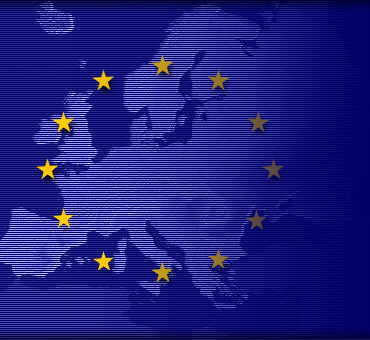
One year after the fall of Hosni Mubarak, with popular upheavals continuing to roil the Arab world, it is increasingly clear that Europe can no longer sit still and do nothing.
The ongoing protests have exposed an urgent need for renewed engagement by the European Union with the region in general – and, in particular, with the countries of the southern and eastern Mediterranean that are the Union’s neighbors.
Until now, the European Neighborhood Policy, born as an afterthought of the EU’s successful policy towards Central and Eastern Europe after the fall of the Berlin Wall, has governed the Union’s actions in the southern and eastern Mediterranean. Over time, however, the ENP was largely hijacked by immigration and security considerations. Moreover, it provided an economic lifeline to the region’s autocratic regimes.
On the Mediterranean’s southern shore, a panoply of grievances, from corruption to a desire for liberty, has motivated the unrest. But the one underlying theme has been the absence of viable economic opportunities for the region’s growing population of unemployed, and underemployed, young people.
One year after the Arab Spring erupted, however, economic opportunities are even fewer. The economies of Egypt, Libya, and Tunisia have all contracted sharply. National budgets are strained, and foreign-exchange reserves are dwindling. Instead of foreign investors jumping in, capital is flooding out.
Given the scale of the challenge facing Europe’s southern neighbors, the EU must forge a far more effective Euro-Mediterranean partnership than anything attempted thus far. The first challenge is to reestablish trust, which requires Europeans to reconsider their attitude towards “political Islam,” in general, and Islamists in government, in particular.
A relevant litmus test is Morocco. Even though it has not followed the region’s revolutionary path, Moroccans’ perceptions and aspirations mirror those in neighboring countries. The EU welcomed the country’s recent constitutional reforms, as well as the election results that brought to power an affiliate of Egypt’s Muslim Brotherhood. But the EU also called for a strong commitment to pluralism, the rule of law, and equal rights for minorities and women – key areas in which Islamists everywhere need to prove themselves.
This conditionality – the “more for more” principle – suggests that the EU has hit upon a viable way to influence developments in the region. But there is also a need to dispel the idea that Europe, supposedly in decline, cannot be a useful interlocutor and partner in fostering regional prosperity. On the contrary, the EU remains the Maghreb’s top trading partner, accounting in 2010 for 70% of the region’s exports, excluding oil.
Europe, though cash-strapped, can also facilitate engagement by multilateral institutions, from the International Monetary Fund and the World Bank, where the EU is the biggest shareholder (close to 37%, compared to the United States’ 16% share), to the European Investment Bank, which recently raised the region’s loan ceiling by €1 billion ($1.3 billion). Likewise, the European Bank for Reconstruction and Development (EBRD) recently announced the start of donor-funded activities in parts of the region, including Morocco, in 2012.
A good example of this sort of EU engagement is the €37 million Ouarzazate Solar Power Plant and Drinking Water Efficiency Program, sponsored by the EU Neighborhood Investment Facility, which was instrumental in securing loans amounting to more than €600 million. It is this leveraging capacity that the EU needs to use more effectively.
Beyond challenges of perception, the success of renewed partnership with Europe requires the region to undertake vital structural reforms. First, the region’s countries must consolidate a sound regulatory and institutional framework that will foster efficiency and legal security for investors, both local and foreign. Such a framework is central to attracting not just big companies, but also to nurturing small and medium-size enterprises, which in Europe, for example, generated 85% of all new jobs in 2002-2010.
It is equally important to frame EU policy as a matter of co-localization, rather than de-localization, and to overcome the zero-sum mentality that is pervasive today. An encouraging illustration of the co-localization approach is the launch of a Renault project in Morocco (which, unfortunately, prompted a public backlash at the height of pre-election fever in France).
Infrastructure is another vital concern, not only for linking the EU and the southern Mediterranean, but also for boosting the much-needed regional integration. Today, most of the Maghreb’s economies are virtual enclaves, cut off from each other for reasons that are often political in nature. Here, too, Morocco is a good example: the Western Sahara conflict looms large behind the closure of the border with Algeria, at an annual cost to both sides that is conservatively estimated at 1-2 percentage points of GDP.
More broadly, the Maghreb countries have the lowest intra-regional trade in the world, accounting for less than 5% of GDP, compared to 70% in the EU and 50% in North America, owing, in large measure, to a “spaghetti bowl” of preferential trade agreements and non-tariff measures within the region. The EU should use its array of bilateral agreements with southern Mediterranean countries to promote a viable regional trade framework.
The Arab revolutions have given everyone the chance to look at the Mediterranean world with fresh eyes. Instead of the old patron/client relationship, an EU/Maghreb partnership, as part of a transformed Neighborhood Policy founded on trust is needed. Only such a partnership can boost economic opportunity and increase prosperity – the demands that ignited the Arab upheaval. If well managed, moreover, such a partnership could also contribute to buoying the European economies in their current time of trouble.
Ana Palacio is a former Spanish foreign minister, former senior vice president and general counsel of the World Bank, and current member of the Atlantic Council’s Board of Directors. This essay originally appeared on Project Syndicate.
Image: EU-MAP.jpg
